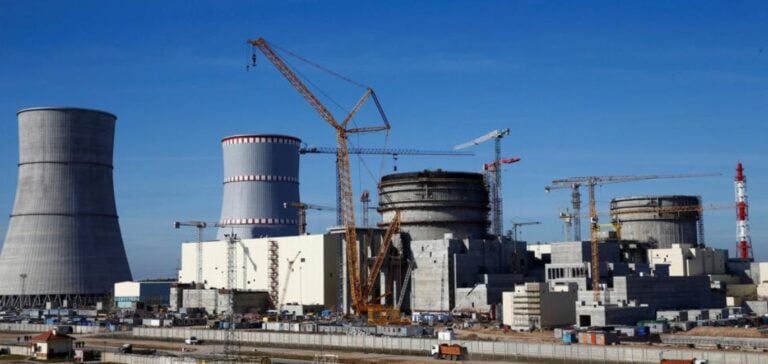Belarus recently ratified important amendments to its nuclear agreement with Russia, according to the official Belta news agency. These amendments, agreed in November 2023, extend the warranty period for equipment at the Ostrovets nuclear power plant and establish new procedures for pricing and conditions of nuclear fuel supply. The plant, equipped with two VVER-1200 reactors, is a key element in Belarus’s energy infrastructure. The initial agreement, signed in 2011, marked the start of cooperation for the construction of this plant, with the first concrete laid in November 2013 and construction of the second unit starting in May 2014. The first reactor was connected to the grid in November 2020, followed by commercial commissioning of the second unit in November 2023. These amendments resolve problems linked to longer-than-anticipated construction delays.
Details of the Amendments and their Impact
Under the new protocol, the two-year warranty period for equipment operation can be extended. Some equipment will benefit from a longer warranty period, offering greater protection and extended technical support. In addition, the agreement contains provisions under which the procedure for setting nuclear fuel prices and the conditions of its supply will be agreed by the competent authorities of both countries. These adjustments are designed to improve the sustainability and safety of the Ostrovets nuclear power plant, while ensuring closer cooperation between Belarus and Russia in the field of nuclear energy. In January of this year, the two countries had already signed a memorandum of understanding to deepen their cooperation in the peaceful use of nuclear technology, including the possibility of building a multi-purpose nuclear research reactor.
Prospects for Nuclear Cooperation
The amendment of this nuclear agreement is part of a series of measures aimed at strengthening collaboration between Belarus and Russia. The Ostrovets nuclear power plant is a flagship project, illustrating Belarus’s nuclear ambitions and its commitment to a stable, sustainable energy source. Extending the warranty period and clarifying fuel pricing procedures are crucial steps in ensuring the long-term success of this project. Bilateral relations between Belarus and Russia in the nuclear sector are also strengthened by the sharing of technologies and expertise. Continued cooperation between these two nations could potentially lead to further nuclear projects, increasing Belarus’s energy capacity and independence.
Reactions and implications
Reactions to these amendments have been positive, underlining the importance of guaranteeing optimal operating conditions for nuclear reactors. Extended warranties help secure investments and ensure long-term operational reliability. In addition, the clarification of nuclear fuel pricing conditions enables better cost planning and management. The impact on the Belarusian energy market is also significant. By securing fuel supplies and guaranteeing equipment maintenance, these amendments help to stabilize the country’s energy sector. The Ostrovets power plant plays a crucial role in the national energy supply, and these measures strengthen its ability to supply energy reliably and continuously. The amendments to the nuclear agreement between Russia and Belarus mark a milestone in energy cooperation between the two countries. By extending equipment warranties and clarifying nuclear fuel pricing procedures, these changes ensure safer, more efficient operation of the Ostrovets nuclear power plant.






















